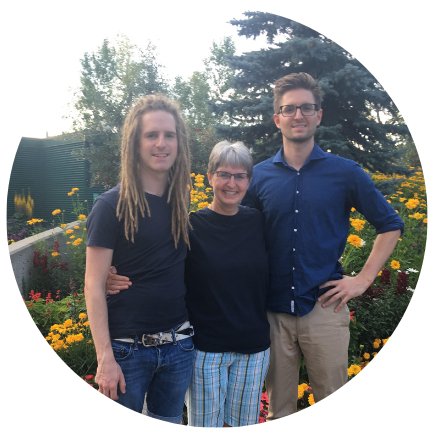Zach Seymour is an expert at living with mitochondrial disease. He doesn’t have mito himself, but both his mother and brother do.
When Zach was 12, he was running the household. He was doing the family’s cleaning, helping raise his younger brother, and leaning on his grandparents to help balance everything.
During this time, Zach’s Mom was suffering from chronic fatigue and sleeping for 14 hours a day. As a single mother of two, she worked at several jobs to try to make ends meet — when she could.
She suspected mitochondrial disease but was unable to convince doctors in their small, rural town that this was a possibility. It was demoralizing, frustrating, and debilitating, as this lack of willingness to consider mito left them without a diagnosis.
No diagnosis also meant no treatment, relief, support, or hope.
Outsiders were unaware of the incredible challenges Zach and his family faced. The handsome young man did very well in school, he was captain of several sports teams, and, he didn’t complain or ask for help.
 As a teenager, Zach felt he and his family were living in some strange sort of limbo. His brother also developed chronic fatigue. They knew that what they were experiencing wasn’t normal but there was no infrastructure in place to put them on the radar. Zach tried constantly to advocate for his family but was unsuccessful at getting them the care and support they needed.
As a teenager, Zach felt he and his family were living in some strange sort of limbo. His brother also developed chronic fatigue. They knew that what they were experiencing wasn’t normal but there was no infrastructure in place to put them on the radar. Zach tried constantly to advocate for his family but was unsuccessful at getting them the care and support they needed.
When Zach was 16, he started experiencing similar symptoms to his mom and younger sibling. He was exhausted, often light-headed, and nauseous. He suffered from debilitating headaches and had trouble concentrating. His athletic abilities declined and his grades dropped. His hands started to tremble. He suffered from depression.
Zach believed he had developed mito. He had not. Zach had a 5.5 cm brain tumour which would be diagnosed three years later.
During the summer following his first year of university, Zach was rushed to a hospital in a major urban centre where he endured a 14-hour surgery to remove the brain tumor. Over the next weeks and months, he fought – and won – many battles. He had to learn to walk and talk again. He needed to regain the 30 pounds and the significant athletic muscle he’d lost. He was not the same person.

